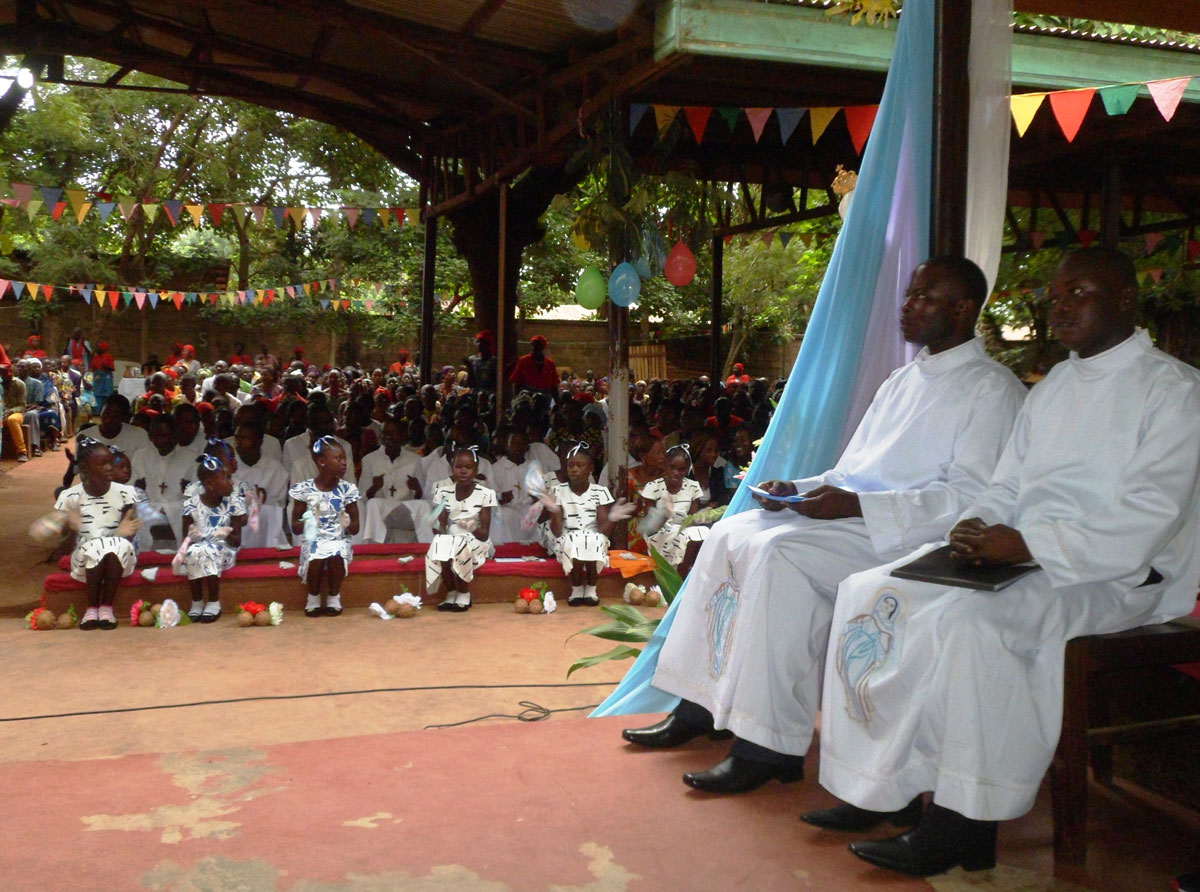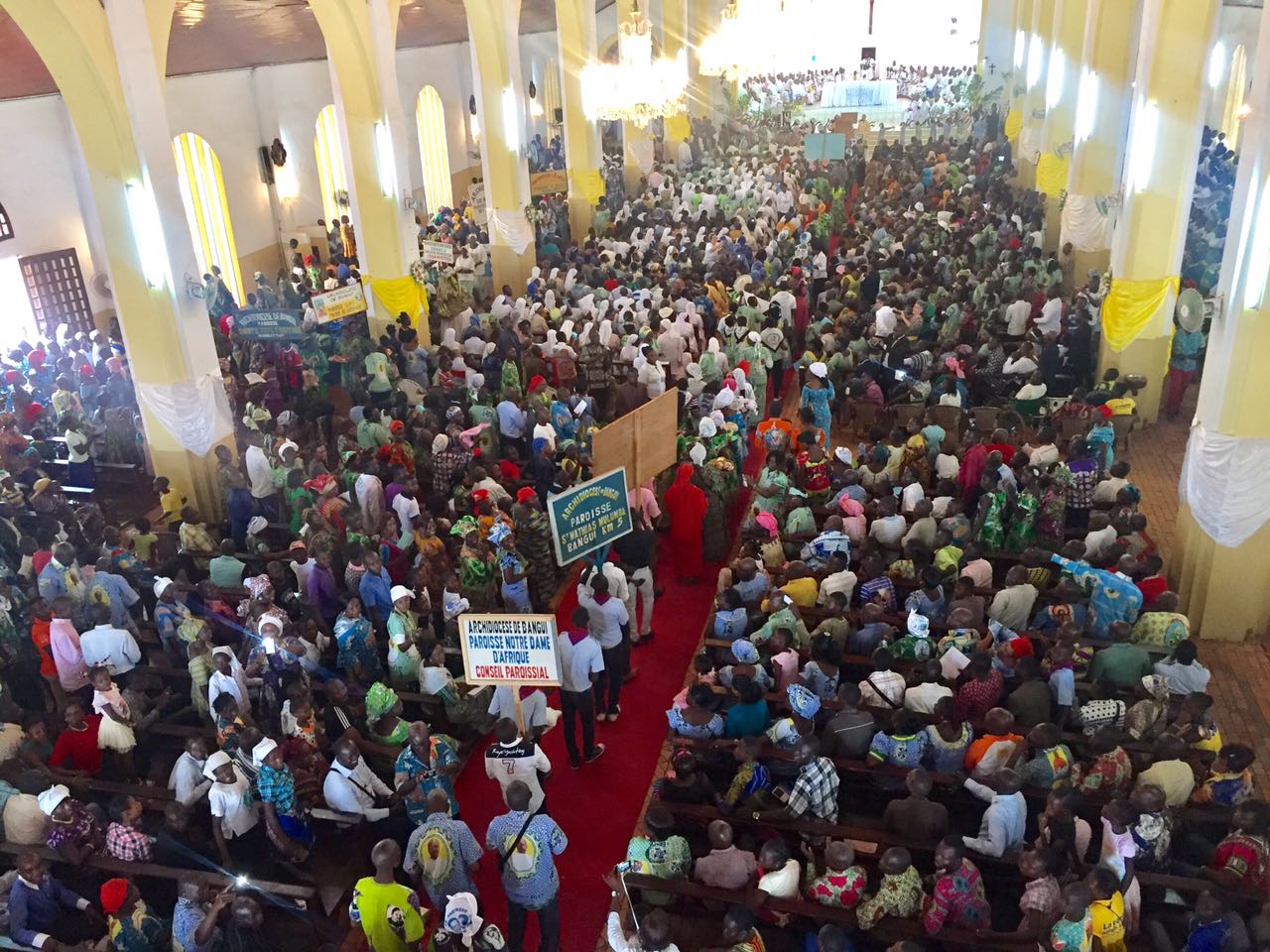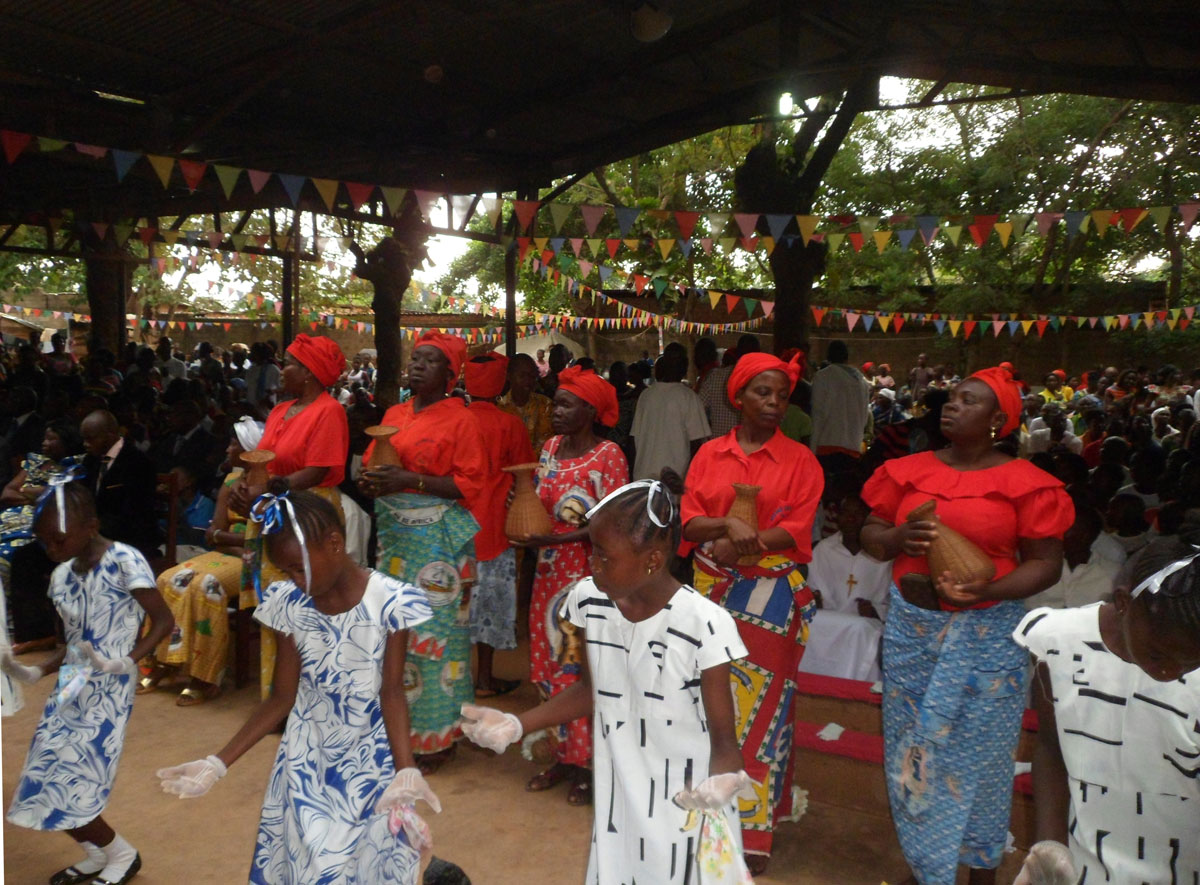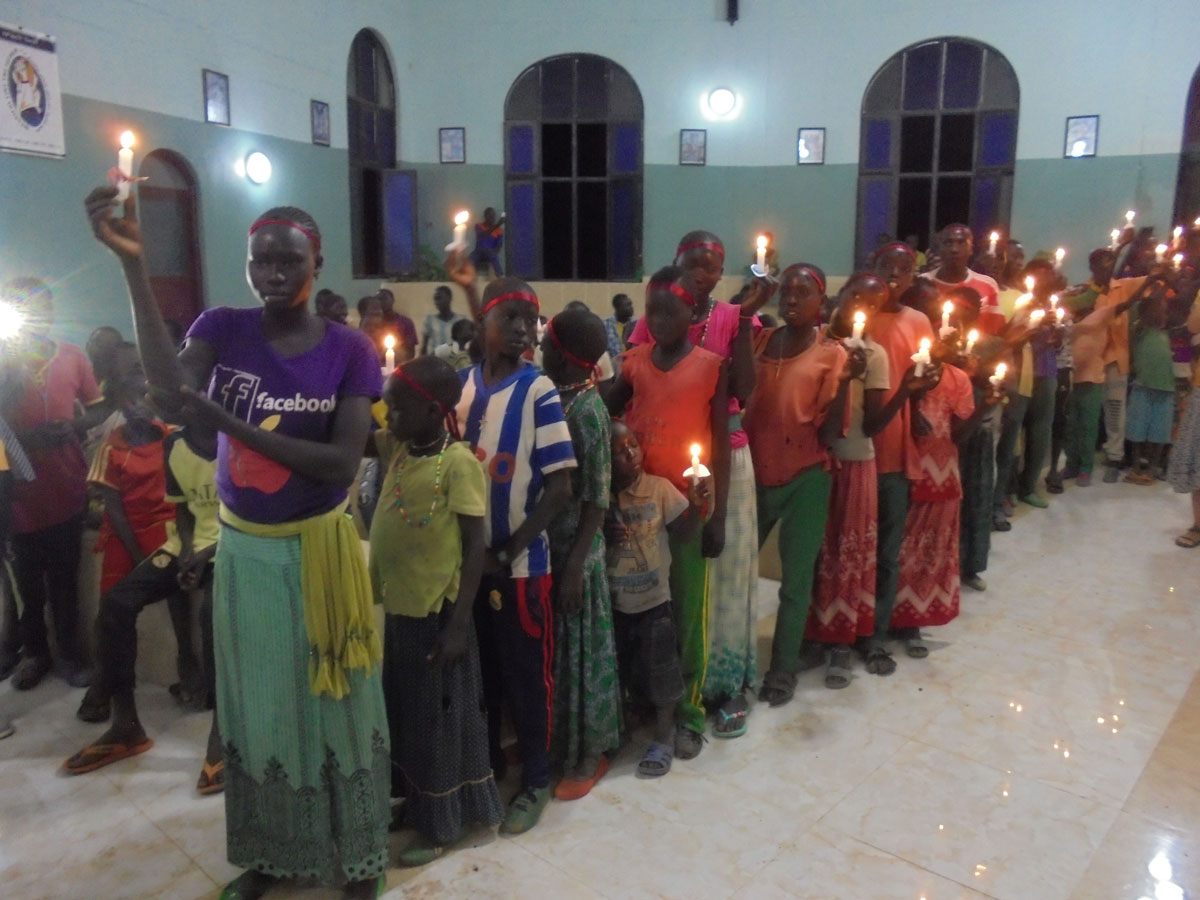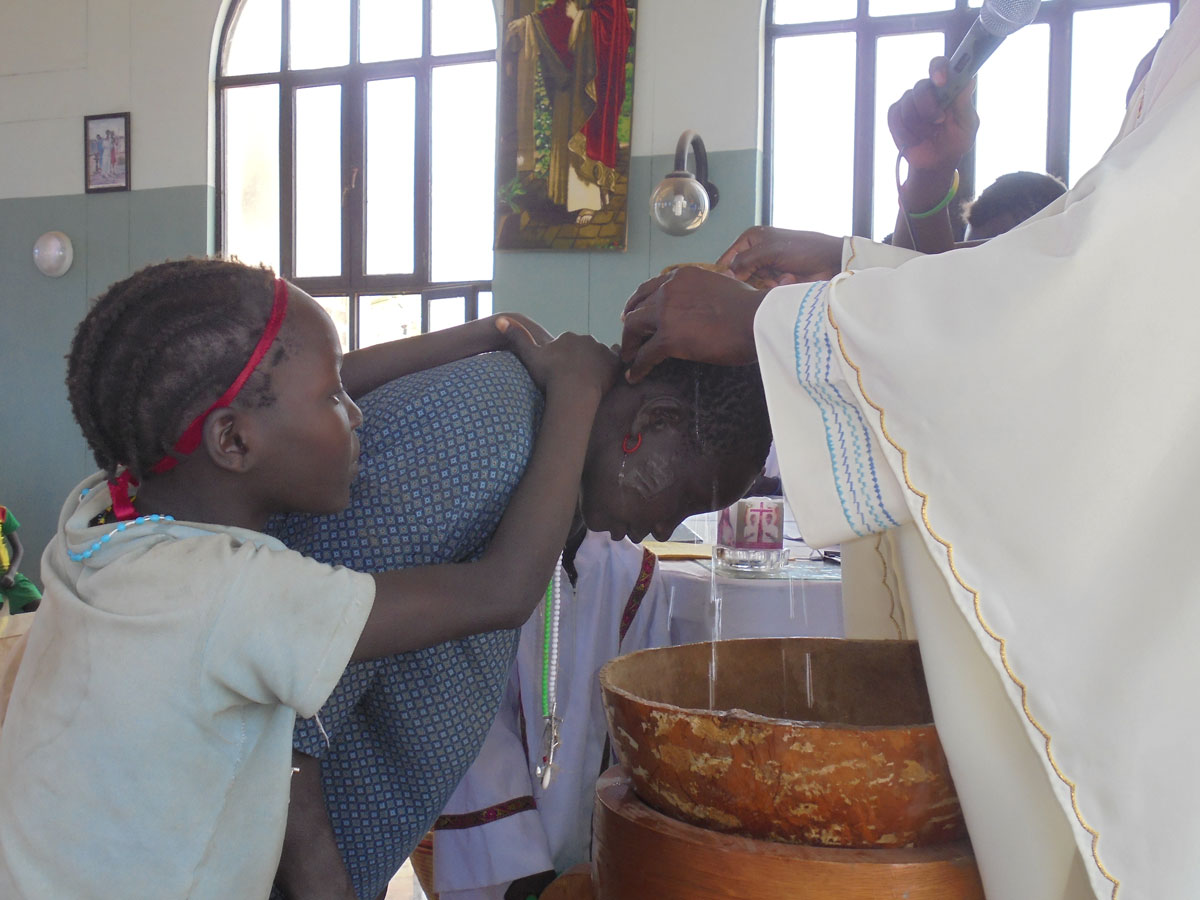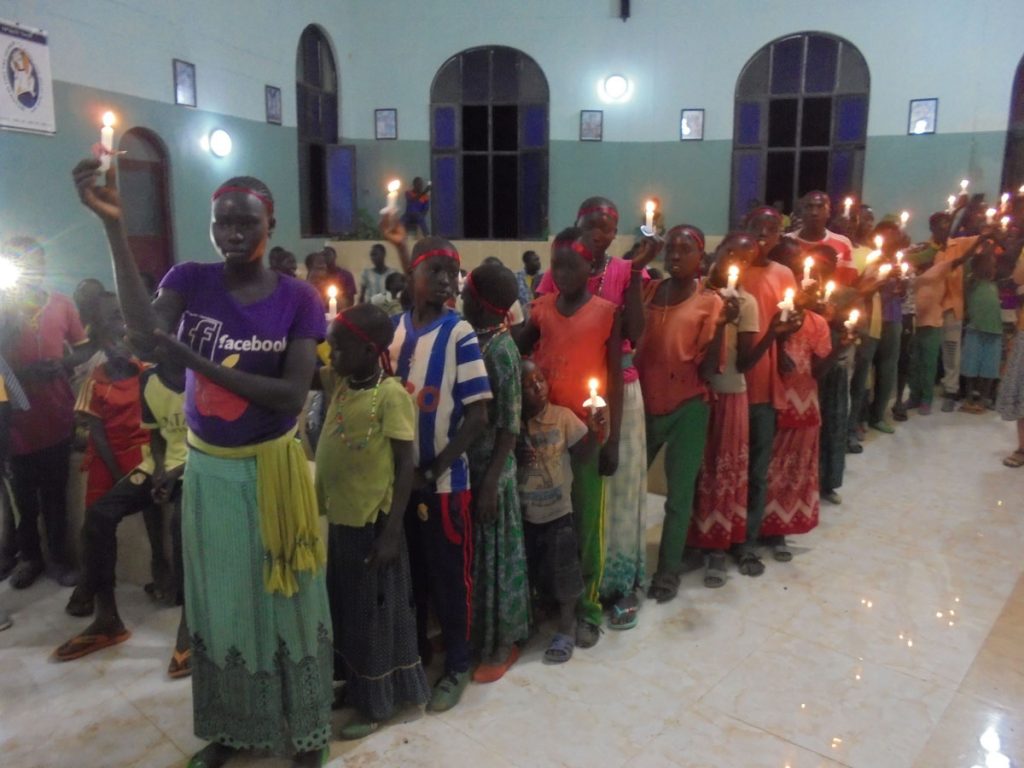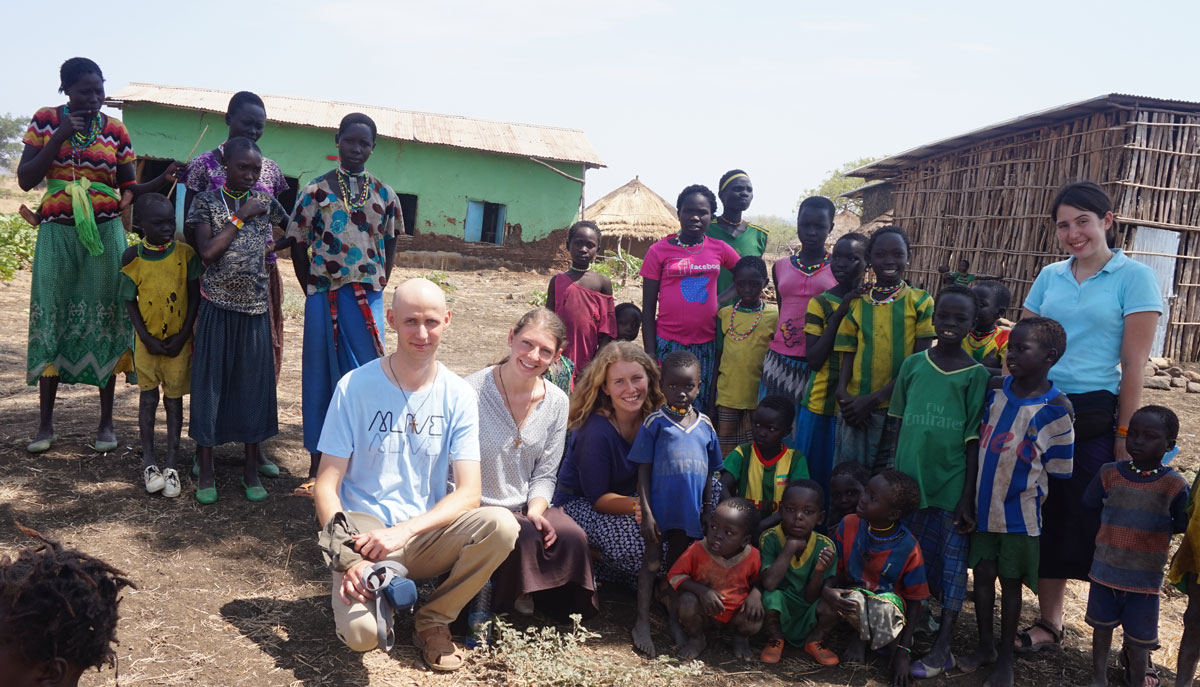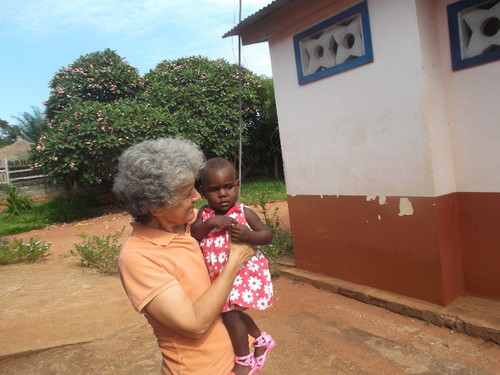 The Comboni Lay Missionary María Augusta Pires, who is stationed in Mongoumba, CAR sends us news whenever she goes through Bangui, the capital, which is the only place where she can find internet access. Here you find the latest news she sent last April.
The Comboni Lay Missionary María Augusta Pires, who is stationed in Mongoumba, CAR sends us news whenever she goes through Bangui, the capital, which is the only place where she can find internet access. Here you find the latest news she sent last April.
This time I returned to Bangui early after one month. Since I was feeling tired, I took a test for malaria and it turned out positive. I have started the treatment while the symptoms are still few, so that the reaction to the medication will be less strong and there is less pain. Ana had malaria two weeks ago and feels tired, because we had with us a dentist from Poland and she accompanied her all the time for almost three weeks. In each village there were lots of teeth to be pulled. There was no possibility to treat cavities because we could not move the equipment. Thanks be to God, it helped lots of people who were in pain. Ordinarily this can be done only in Bangui and it is very expensive, with one extraction costing about F10,000 ($18). Some people needed two or three extractions and we charge a symbolic F500, which is less than $1.00.
Fr. Fernando and Fr. Jesús are fine, thanks be to God. Fr. Samuel had malaria early in March and again last week. Now he has typhoid fever (Salmonella). He will have to take one or two antibiotics. May the Lord help him to get well soon… he is a little discouraged… Please, pray for him.
María, a Pygmy woman who has cancer, was feeling a little better. But last week she started having serious diarrhea. We gave her medication to stop it, but it did not. So we started the malaria treatment with injections and immediately she improved. She has slimmed down a lot and now she needs better food. We shared our food with her to give her a more varied diet and we hope she will improve faster. Let us continue to pray to Mary and to her son Jesus.
Last week, twins were born to a mother without milk and she needed help. At this time we are taking care of nine babies. With God’s help and the generosity of those who share to help the poorest, we can work with joy and so share things with those around us.
Two weeks ago, while I was visiting the sick in the hospital, I met a woman who had had a cesarean but who, after three days, still had no milk. They asked me for milk, but I insisted that she needed to do all in her power first to make it come. So I gave her a menthol infusion and on the second day, it started coming a little. We repeated it for two more days and, thanks be to God, Patrice began to suckle well. Mother’s milk is always the best and even more here where milk is very expensive and the hygienic conditions are very poor (the hygienic care of the baby bottles and of the water used to mix the milk). A year supply of baby milk costs about $450. Very few families can afford to buy it.
During Lent, the Wednesday Mass is said in a neighborhood and on Friday the way of the Cross takes place in the same neighborhood. On Friday it will the youth of the whole parish who will take part in the JMJ. On Saturday we will have formation and on Palm Sunday it will be a great celebration. Last week, the catechumens [people preparing to be baptized] of the third year had a three day retreat and on Sunday they received the Oil of Catechumens. Since they are many, it is easier to celebrate baptism in stages.
A new CLM, Simone, who is from Italy, has arrived. He is here learning French in Bangui and we still do not know where he will go to study Sango [the local language].
I have read with joy the entire Astrolabios messages [she gets them by e-mail] and pray that the visit of D. Virgilio will yield much fruit in the future. May the pastoral visit be a success.
That the hearts of his faithful may receive with joy the bishop’s words. I pray that they may improve their lives as Christians and be true witnesses of Christ.
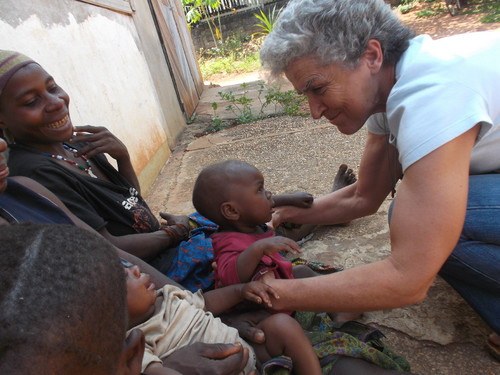 Best wishes of a Happy Easter to all.
Best wishes of a Happy Easter to all.
United in Christ through prayer.
A missionary hug as big as the world.
María Augusta Pires
Published in the Astrolabio Diary
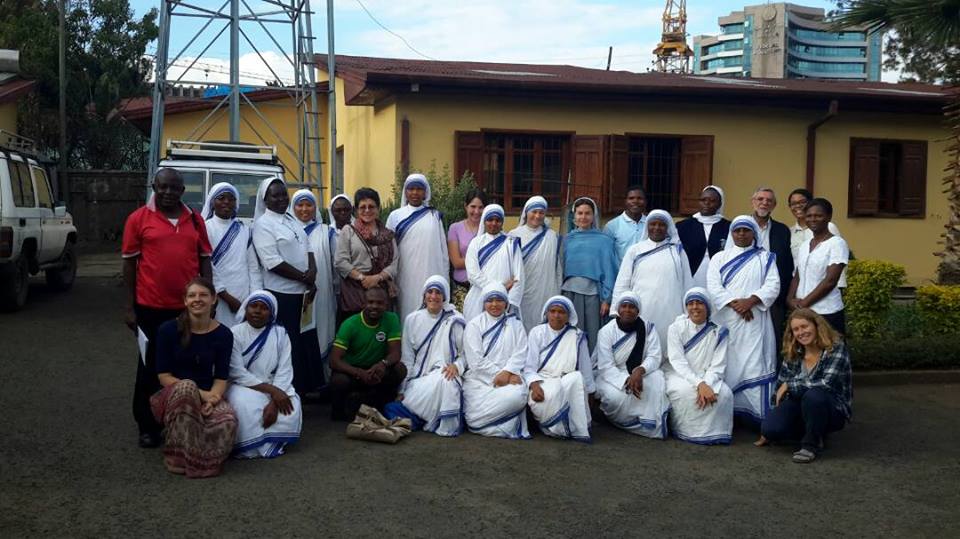 In the first week of May all our community participated in the new comers’ course. It was organized by Comboni Family but participants were from different congregations. All together we were over 30 people.
In the first week of May all our community participated in the new comers’ course. It was organized by Comboni Family but participants were from different congregations. All together we were over 30 people.





